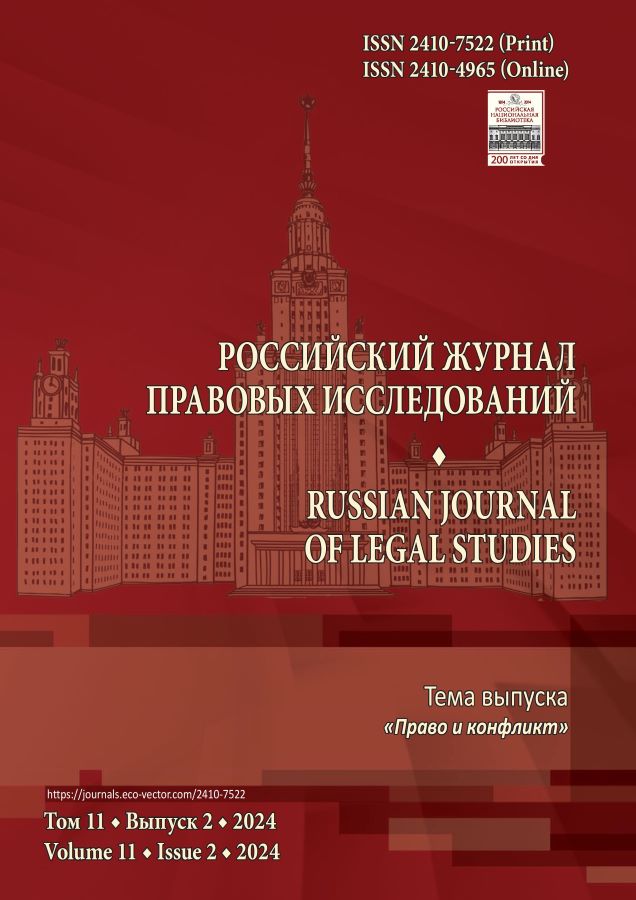Проблемы и опыт реформирования налогообложения цифровой экономики на примере Китайской Народной Республики
- Авторы: Селютина Т.С.1
-
Учреждения:
- Финансовый Университет при Правительстве РФ
- Выпуск: Том 11, № 2 (2024)
- Страницы: 43-49
- Раздел: Публично-правовые (государственно-правовые) науки
- Статья получена: 16.03.2024
- Статья одобрена: 10.04.2024
- Статья опубликована: 19.07.2024
- URL: https://journals.eco-vector.com/2410-7522/article/view/629157
- DOI: https://doi.org/10.17816/RJLS629157
- ID: 629157
Цитировать
Аннотация
Проблемы налогового администрирования, налогообложения нематериальных объектов, собираемости налогов являются актуальными практически для любой национальной экономики, но в условиях ее быстрой цифровизации обостряются кратно. Однако, помимо обострения старых противоречий и возникновения новых трудностей, современное устройство экономики также предоставляет возможности, связанные и обеспеченные передовыми цифровыми решениями. В статье рассмотрен накопленный Китайской Народной Республикой (далее — КНР) опыт исследования и попыток решения проблем налогообложения в условиях быстрой цифровизации экономики. В частности, выявлены три компоненты цифровой экономики, характерные для любой страны: индустрия информации и связи, традиционные отрасли и цифровое управление. Обобщены основные проблемы сбора налогов в экономике КНР, активно переходящей в цифровую стадию развитию. Изучены мнения китайских исследователей по вопросам выбора путей реформирования налоговой системы страны, на их основании скомпилированы принципы построения такой системы в новых реалиях. В России развивается ситуация, во многом аналогичная китайской, что делает возможным более активный обмен опытом между нашими странами и даже, в определенной степени, синхронизацию систем налогообложения в цифровой сфере с целью усиления экономического сотрудничества КНР и РФ.
Ключевые слова
Полный текст
Об авторах
Татьяна Сергеевна Селютина
Финансовый Университет при Правительстве РФ
Автор, ответственный за переписку.
Email: Tatiana-selyutina@yandex.ru
ORCID iD: 0000-0001-8575-2479
SPIN-код: 1575-5004
кандидат экономических наук
Россия, МоскваСписок литературы
- Абонеева Е.В., Агаларова Е.А., Аливанова С.В., и др. Институционально-факторные особенности и тенденции развития экономики в условиях цифровизации. Ставрополь: АГРУС, 2020. EDN: OTLWLG
- Журавлева И.А. Концептуальные основы развития политики международного налогообложения // Аудит и финансовый анализ. № 1. 2023. С. 19–28. EDN: ERZFXP
- Cui J.G. Research on the digital economy’s erosion of China’s customs tax base and countermeasures // China Port Science and Technology. 2020. Vol. 1. P. 13–22.
- Li W., Xing L. Research on income tax of multinational enterprises in digital economy and China’s response. Sub National Fiscal Research. 2020. Vol. 2. P. 105–112.
- Hendriyetty N., Evans C., Kim C.J., et al, editors. Taxation in the digital economy: new models in Asia and the Pacific. London, New York: Taylor Francis, 2022.
- Zhang, L., Chen S. China’s digital economy: opportunities and risks. International Monetary Fund, 2019.










